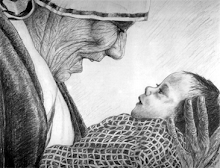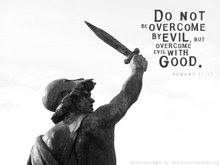The last several years Jenny and I have commemorated Hanukkah, getting a little better at it each year (having not been raised to celebrate Hanukkah I am learning as I go). Often when people find this out they question why we would do this, as we are not Jewish (if they even know what Hanukkah is at all). My response is that the event which Hanukkah celebrates is a part of redemptive history and there is nothing about it that should make it exclusively a Jewish celebration; this was a miracle that God did, and I want to celebrate those. But they do have a point: we are not Jewish, which means that when we celebrate Hanukkah in the light of Christ we will celebrate it a little bit differently.
I’m still trying to figure out how this celebration plays itself out in the long run for my family and, hopefully, for other that will eventually join us. I’m still learning about the history of it and the foreshadowing that is present within the story. Over the coming weeks I hope to learn more, and to help in doing that I am going to tell the story of Hanukkah here. It’s actually a pretty long story, so I’m going to do it in parts. Here is part one:
PART I: FOREIGN RULE
Antiochus III, also known as Antiochus the Great, became the 6th ruler of the Seleucid Empire in 223 BC (ish) at the age of 18, and ruled until 187 BC. During his reign Antiochus fought many wars with an eye toward expanding his kingdom. In 198 BC Antiochus defeated Scopas and ended Ptolemaic rule in Judea.
The relationship between the Jews and the Seleucid king was overall cordial; the Jews paid taxes and accepted the Syrian authority and the king allowed them to lead relative autonomous lives, especially in regards to their faith. This friendly relationship was not to last, however, as the king’s successor and son, Antiochus IV, called "Antiochus Epiphanes" (God’s beloved) ascended to the Seleucid throne. A historian of the time, Polebius, called him “Antiochus Epimanes” (madman). At this time Roman influences and taxes began to take their toll on the Jewish people. Antiochus IV looted the temple in Jerusalem for its gold, gold whose purpose was the upkeep of the temple and charity toward God’s people. He sought to unify his region under one state religion and began persecuting and massacring the Jews. He suppresed Jewish laws and removed the High Priest, Yochanan, replacing him with a Greek sympathizer. Antiochus IV desecrated the temple by ordering the sacrifice of pigs on the alter and in 167 ordering a statue of Zeus be erected in the temple of Yahweh.
At this time the Jews were not only facing an external struggle to maintain their faith, but an internal one as well. Over a 100 years earleir Alexander the Great had conquered, well, just about everything and in so doing spread the Greek traditions and beliefs whereever he went. In the preceeding century the Jews has assimilated much Greek culture, watering down many of their distictive beliefs and practices.
PART II: THE MISCALCULATION
18 hours ago








No comments:
Post a Comment